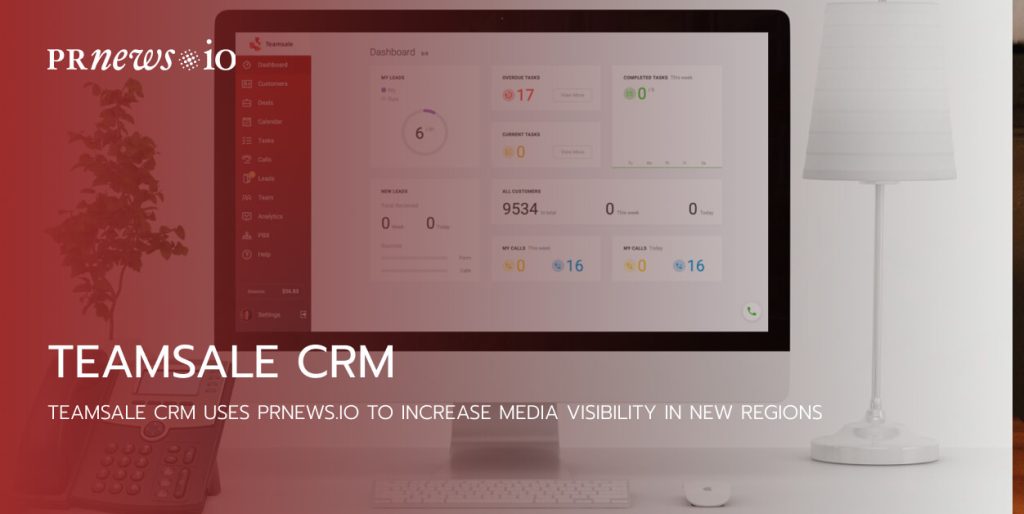As the digital landscape continues to evolve and adapt to ever-changing consumer behaviours, the role of a media planner has become increasingly crucial in the success of advertising campaigns. Media planners are strategic thinkers with a unique blend of creativity, technical proficiency, and analytical skills. ‘
The advertising industry thrives on the confluence of creativity and strategy. Within this bustling world, media planners are the architects who blueprint how a brand’s message reaches its audience.
A media planner isn’t merely concerned with numbers and spreadsheets; they are visionaries who understand the pulse of the media landscape. This post is tailored for those in the marketing field looking to understand and potentially step into the role of a media planner and practicing media planners looking for insights to refine their craft further.
Media planners are uniquely positioned to blend data analytics with the creativity of ad campaigns. As gatekeepers of a brand’s media presence, they hold significant sway over the effectiveness of the messages being shared. This post breaks down the multifaceted role of a media planner, sheds light on the salaries to expect, and arms aspiring planners with the skills they need to succeed.
Who is a Media Planner?
The media planner has a strategic role within the advertising and marketing sector. They are responsible for finding the best mix of media platforms to place an advertisement. This placement, whether in print, television, radio, or digital, aims to reach the most potential customers in the most cost-effective way.
Media planners are the conductors of the symphony, which is a brand’s advertising campaign. They work with client briefs to understand the target audience, business goals, and budget constraints. With this information at the forefront, they set out to identify the best media mix to ensure the advertising campaign resonates with the right people.
Media Planner Job Description
The role of a media planner is multifaceted and dynamic, requiring a blend of creative thinking and analytical prowess. Not only must they design campaigns that resonate with target demographics, but they must also navigate the ever-evolving media landscape to maximise impact and ROI.
A proficient media planner assesses the merits of different media platforms—print, broadcast, or digital—and devises strategies that integrate a mixture of these channels to engage audiences effectively.
They work closely with clients to define marketing goals, tailor messages to specific segments, and track campaign performance, making data-driven adjustments as necessary. By staying on top of media trends and consumer behaviour, media planners ensure that campaigns cut through the noise and deliver results.
Job Responsibilities
Crafting a Strategic Media Plan
A media planner’s responsibility is to craft a strategic blueprint that identifies when and where ads should be placed. This intricate process requires a deep understanding of how media consumption varies across demographics.
Market Research
Before any campaign takes flight, thorough market research must be conducted. Media planners analyze market trends, audience profiles, and the effectiveness of different media channels based on the historical performance of similar ads.
Target Audience Analysis
Understanding the target audience is critical. Media planners develop profiles of potential consumers, considering behaviour, interests, and purchasing power. This data is then used to choose media outlets that the target audience frequents.
Media Buying
This is where the art of negotiation meets the science of data. Media planners need to be adept at purchasing media space at the best rates while also ensuring it aligns with the audience’s content consumption.
Digital Integration
In today’s highly digital landscape, media planners need to be well-versed in digital platforms and integrations. They routinely consider programmatic advertising, social media, and other digital innovations to enhance a campaign’s reach and relevance.
PRNEWS.IO in Modern Media Planning
The services provided by PRNEWS.IO streamline the media planning process by offering a one-stop platform to discover, reach, and engage with the right media outlets. This modern tool has become indispensable for media planners in simplifying the placement process while increasing the visibility of their campaign.
Salary Insights
Understanding the Earnings Potential
The salary of a media planner varies widely and is affected by many factors. The industry you work in, the geographic location, the size of the agency, and your own experience level all contribute to your potential earnings.
According to Indeed, the average base salary of a media planner in the United States is $57,295 per year.
Let’s take a look at the annual salary of media planners by cities:
| City | Annual Salary | Monthly Pay | Weekly Pay | Hourly Wage |
| Berkeley, CA | $94,935 | $7,911 | $1,825 | $45.64 |
| Renton, WA | $92,264 | $7,688 | $1,774 | $44.36 |
| Santa Monica, CA | $91,526 | $7,627 | $1,760 | $44.00 |
| Bailey’s Crossroads, VA | $89,935 | $7,494 | $1,729 | $43.24 |
| Daly City, CA | $89,845 | $7,487 | $1,727 | $43.19 |
| Boston, MA | $89,112 | $7,426 | $1,713 | $42.84 |
| Auburn, ME | $88,265 | $7,355 | $1,697 | $42.44 |
| Scottsbluff, NE | $87,831 | $7,319 | $1,689 | $42.23 |
| San Mateo, CA | $87,225 | $7,268 | $1,677 | $41.94 |
| Richmond, CA | $86,689 | $7,224 | $1,667 | $41.68 |
Factors Affecting Salary Range
Media planners in metropolitan cities and those in the digital or healthcare industries typically earn more. As with any career, tenure and experience also increase the likelihood of a higher salary.
When negotiating your salary, you must be aware of industry standards and the unique offerings you bring to the table. Your knowledge and experience can often be the key to securing a higher compensation package.
Required Skills
Analytical Prowess
Data is at the heart of media planning. Being able to interpret and act on analytics is a pivotal skill. Familiarity with tools like Google Analytics and Nielsen ratings can massively enhance a media planner’s effectiveness.
Communication and Negotiation
The role requires constant communication with internal teams, clients, and media representatives. Strong negotiation skills can result in significant cost savings when purchasing ad space, ultimately benefiting the campaign’s ROI.
Tech-Savviness
With the digital landscape continually evolving, staying tech-savvy is more than just an asset; it’s necessary. Familiarity with digital platforms, programmatic advertising, and cutting-edge media technologies is vital.
Creative Thinking
While media planning is data-driven, it also requires a creative touch. Understanding how to present ads to capture attention without overspending is a delicate balance that innovative thinking can help achieve.
Adaptive Agility
The media landscape is a dynamic environment that is constantly shifting. Being adaptable and agile ensures a media planner can pivot their plans to take advantage of emerging opportunities or adjust strategies in response to market changes.
Media Planner Career Path
The career path for a media planner typically begins with an entry-level position, often titled as Media Coordinator or Assistant Media Planner. At this stage, the focus is on mastering the tools of the trade, learning to compile data, and understanding the rudiments of media buying.
With experience, a media planner can advance to a senior planner role, taking on greater responsibility for strategy and working more closely with clients to develop comprehensive media campaigns. They might also manage a small team, leading projects and campaigns.
The next step could involve transitioning into a Media Supervisor or Media Director position. At this level, the tasks involve overseeing entire media departments or large-scale projects, ensuring strategic objectives are met while managing budgets and fostering client relationships.
Ultimately, for those showing exceptional skill and leadership, the pinnacle of the career could be a role as a Chief Media Officer (CMO) or within top executive management at an agency, where the focus is on shaping company policy, driving innovation, and leading the business forward in the ever-evolving media industry.
Media Planner Education
A solid education is foundational to a career in media planning. Prospective media planners often pursue a bachelor’s degree in advertising, marketing, communications, or a related field.
These programs typically cover subjects like consumer behaviour, market research, advertising strategies, and media ethics, equipping students with the vital knowledge required for the industry.
Additionally, internships during their academic career can offer practical experience and a foot in the door at advertising agencies or in-house marketing departments. Continuing education, such as certifications in digital marketing platforms and tools, can further enhance a media planner’s skill set and keep them updated with the latest media trends and technologies.
Media Planner Tips
Successful media planners are known for staying ahead of the curve in a rapidly changing industry. To excel, it’s crucial to remain adaptable and continuously hone one’s craft. Here are some tips for aspiring media planners:
- Stay Informed: Regularly follow industry news, trends, and updates to anticipate shifts in media consumption and plan accordingly.
- Leverage Data: Utilize analytics tools to understand audience behaviours and measure campaign effectiveness. Data-driven decisions lead to better outcomes.
- Network: Building relationships with publishers, vendors, and other media professionals can open doors to new opportunities and insights.
- Be Creative: Think outside the box when devising media strategies to capture audience attention uniquely.
- Learn Continuously: Engage in professional development opportunities such as workshops, seminars, or online courses to enhance your skill set.
- Use Technology Wisely: Embrace the latest media planning software and platforms to streamline workflows and improve precision in targeting.
- Prioritize Communication: Effective communication with your team and clients is essential in ensuring campaign goals are understood and met.
By incorporating these practices, media planners can set themselves up for a dynamic and flourishing career in the media landscape.
Conclusion
A media planner’s role is indispensable in directing the flow of advertising resources for optimal impact. The responsibilities are varied, the salary is healthy and the skills required are multifaceted. Understanding these elements is key to success in this dynamic field.
Recognizing the evolving landscape and adopting tools like PRNEWS.IO can offer a competitive edge for firms looking to enhance their media planning capabilities.
For media planners wanting to push their careers forward, honing in on the essential skills and staying ahead of the curve will lead to lucrative and fulfilling opportunities. Whether you’re a seasoned professional or just beginning to explore the media planning domain, continuing to learn and integrate the latest techniques is crucial.
Take the initiative to master these facets of media planning, and you’ll find yourself at the helm of not just a brand’s message but its entire narrative in the minds of consumers. It’s a role of immense importance and great potential for those willing to take on the challenge.
Read more:
- Exploring The Exciting Range Of Public Relations Jobs
- Media Relations Manager Job Description, Salary Insights, And Essential Skills Guide
Is your business in need of a PR makeover?
- Benefit from media coverage assistance.
- Witness a refined branding approach.
- Watch as your recognition soars.





